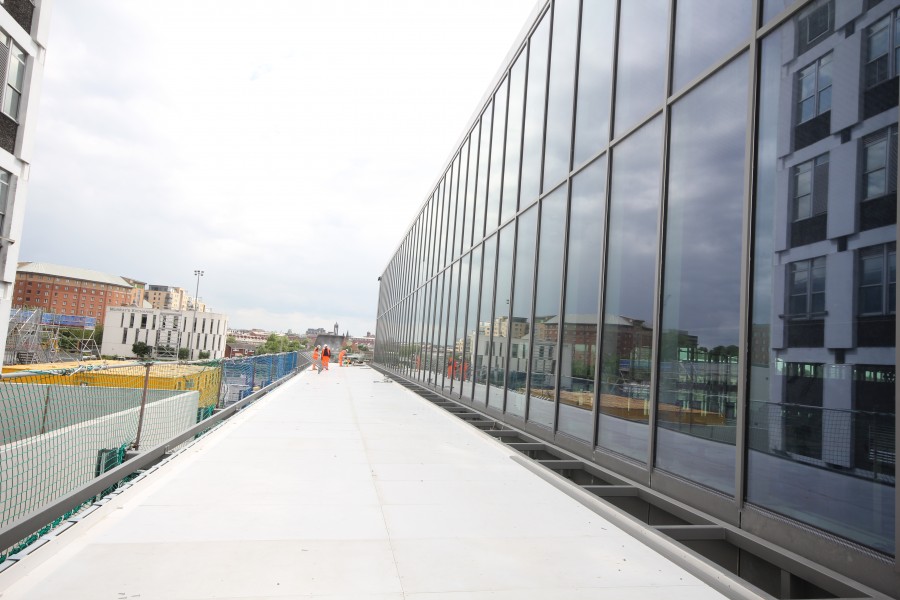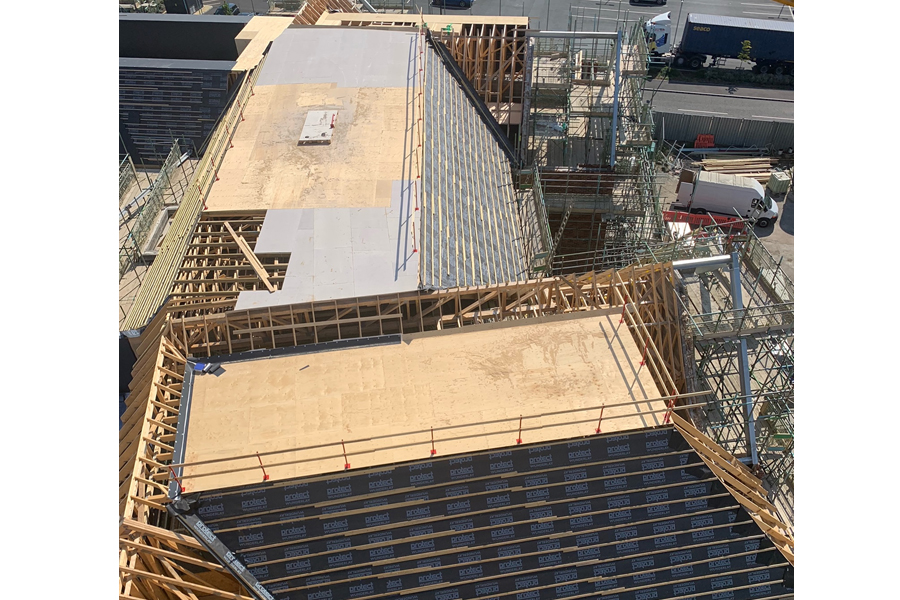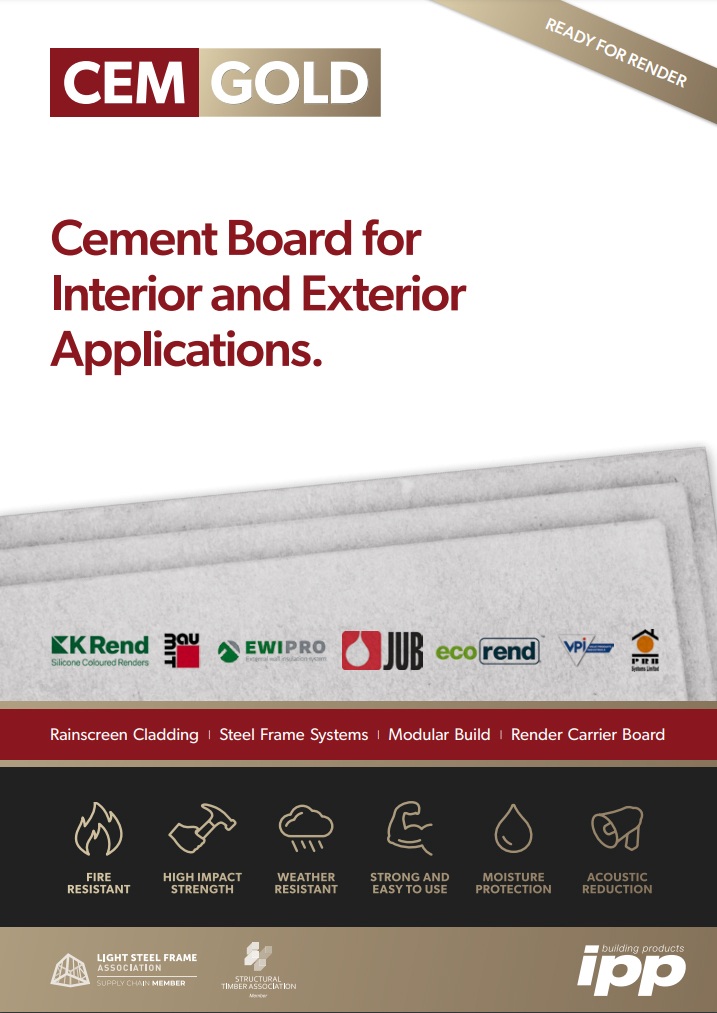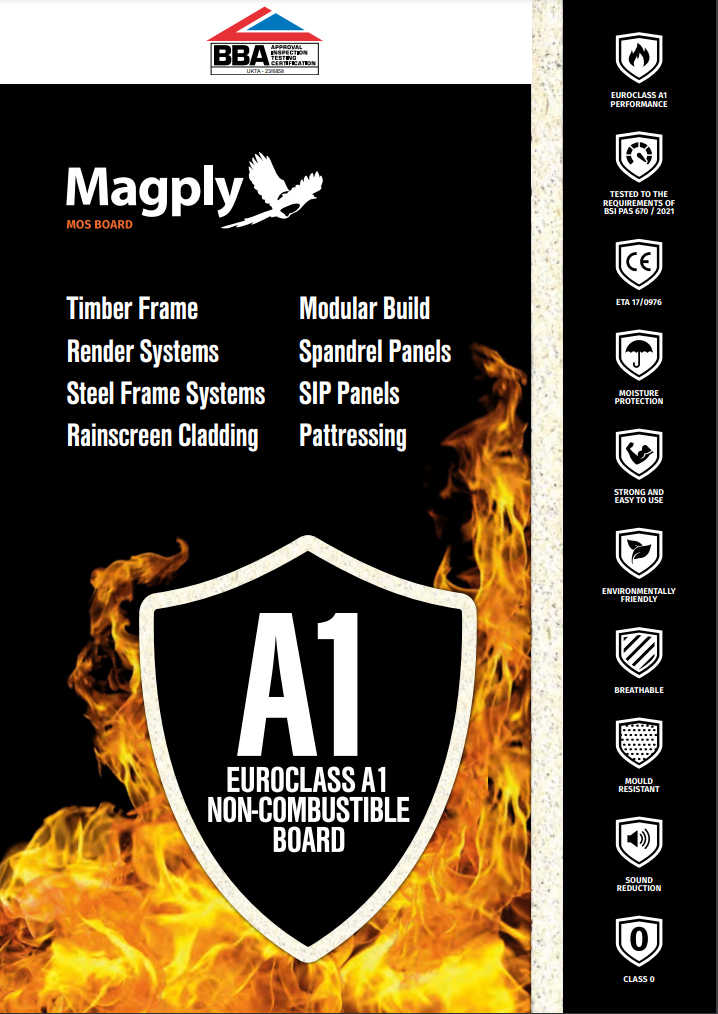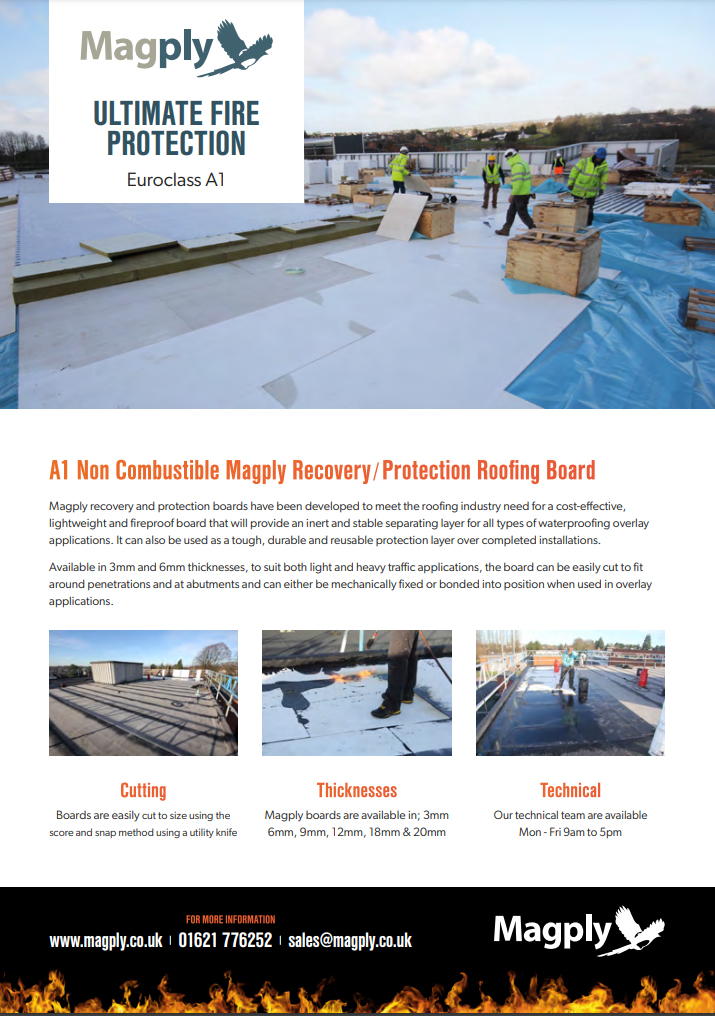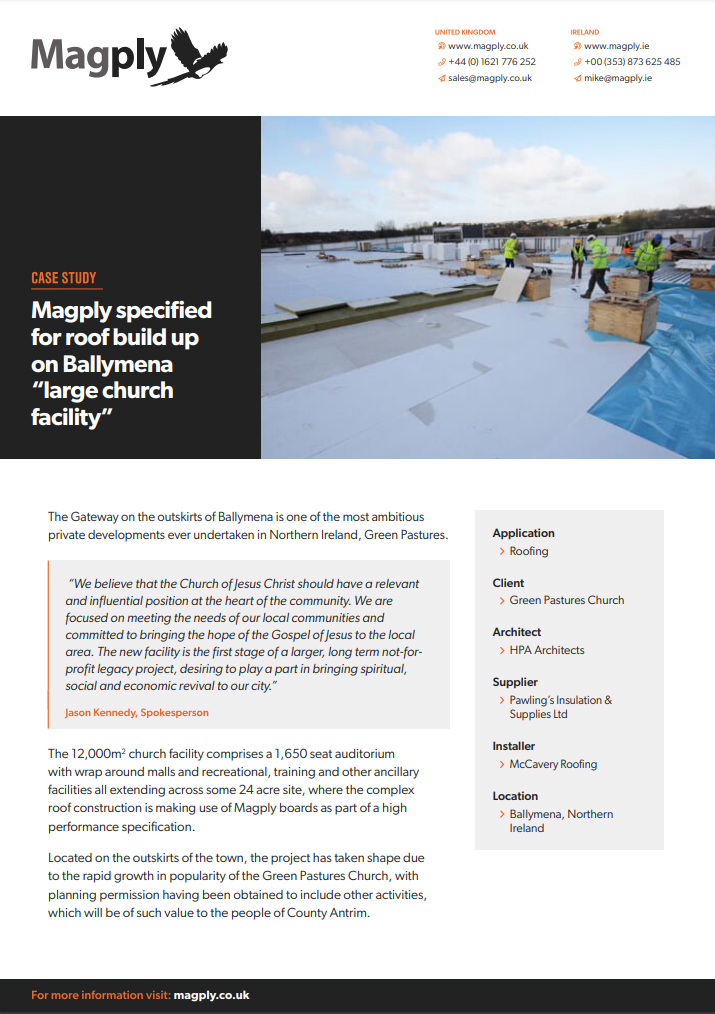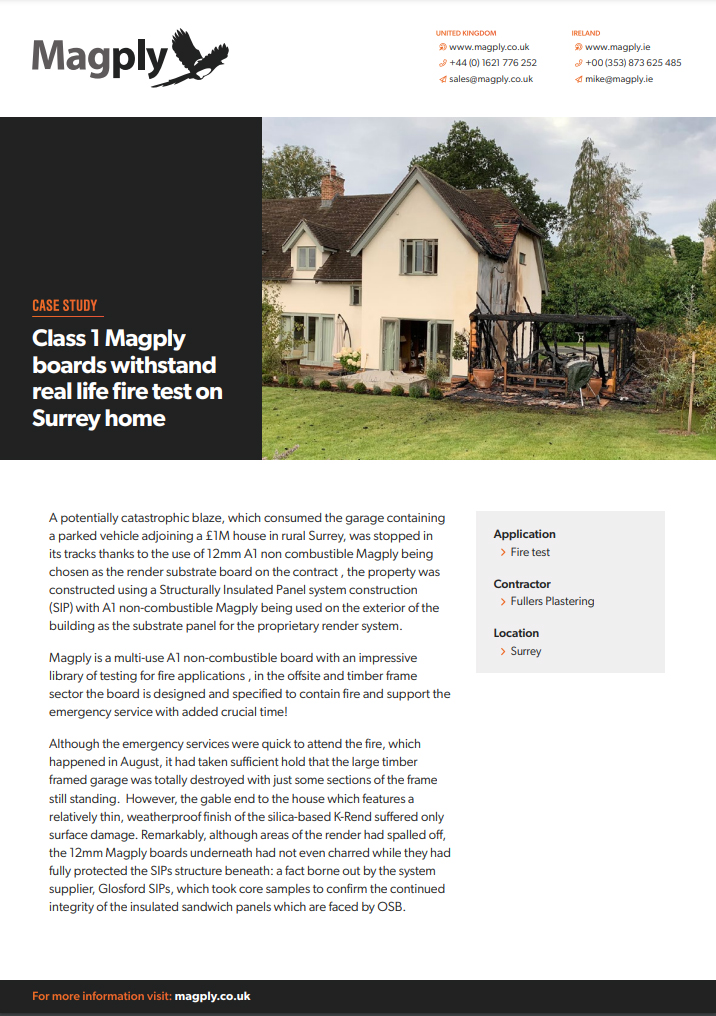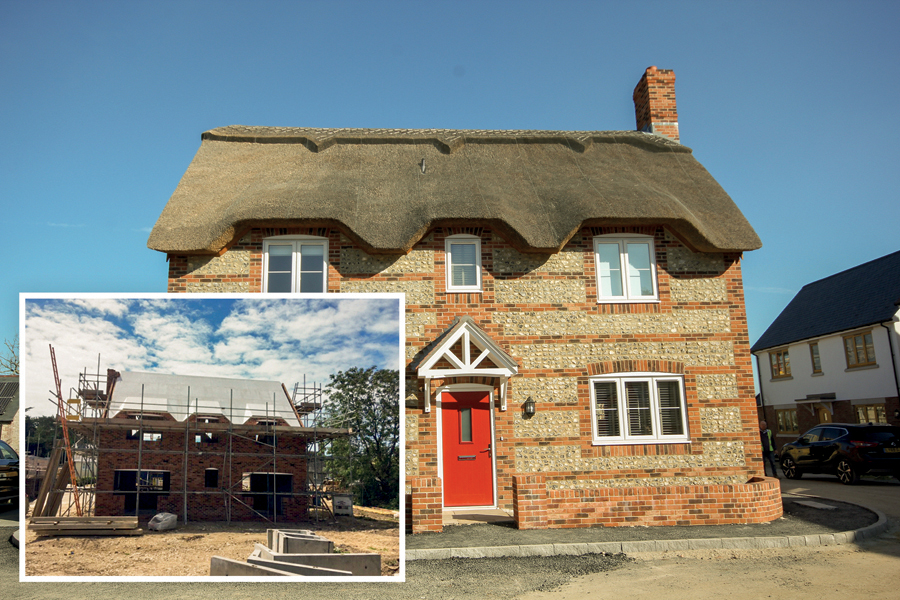
Widely specified for its fire resistance and all round stability in the cladding build-up to apartment blocks as well as a render backer and sheathing board, IPP’s highly versatile Magply boards have been employed by a regional developer as a fireproof sarking board beneath traditional thatched roofing for a development in a beautiful Dorset village.
The 12mm thick version of the high performance MgO material was selected by Poole based Charlew Developments, to comply with the project architect’s performance specification for the solitary thatched roof building on a nine house scheme in the village of Owermoigne, near Dorchester.
Reflecting an aesthetic ethos similar to that adopted for Prince Charles’ landmark Poundbury development on the outskirts of Dorchester, local planners made the inclusion of a thatched property a stipulation of planning permission for the development and the exterior to the four bedroom dwelling also includes panels of flint-work between the bands of handmade brick which form the window surrounds.
The thatch was installed by specialist roofing company, RV Miller from Keynes Wareham in Dorset. The overall roof construction saw the 12mm Magply boards being nailed down across the main rafters and covered by a breather membrane before battens were secured in the conventional manner, running across the pitches. The authentic reed thatch was then laid up the pitch and shaped around the eyebrow dormers at the roof edge and verges.
The site agent for Charlew Developments, Jules Peach, commented: “The project architects, Anders Roberts, specified the use of a one hour fire resisting board to be installed beneath the thatch covering. I researched a number of different board types before talking to our merchant, Travis Perkin, which recommended the Magply product. We have found the boards very straightforward to cut and fix before covering them with the breather membrane and battens.”
Backed by BDA Agrement certification, Magply MgO boards present a fire-safe and environmentally friendly alternative to conventional plywood or OSB products. Additionally, the unique production process keeps the chloride content to just 0.01%, enhancing both stability and long-term durability. The different thicknesses of panel are also widely used as a substrate board for flooring and flat or pitched roof build-ups as well as render systems.









